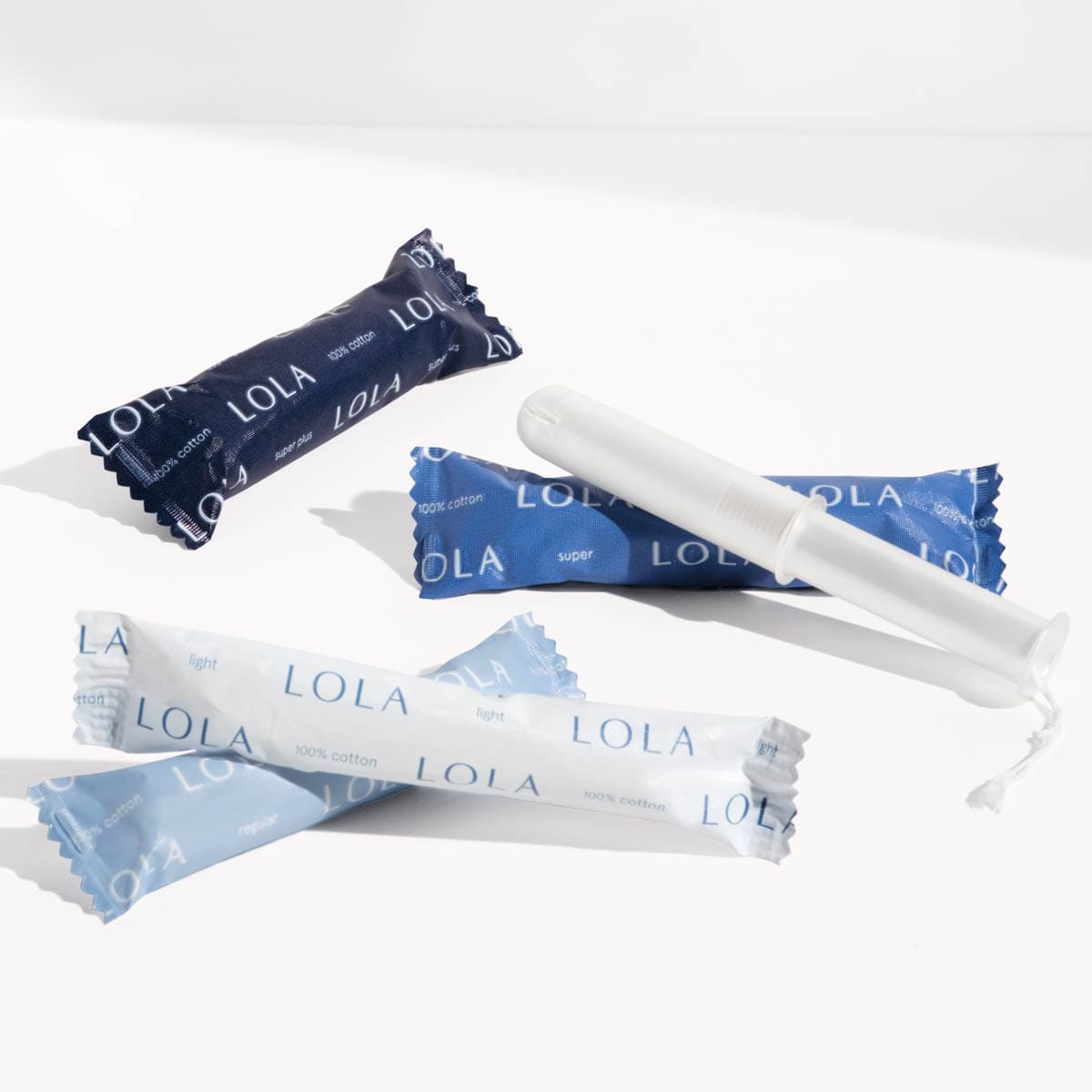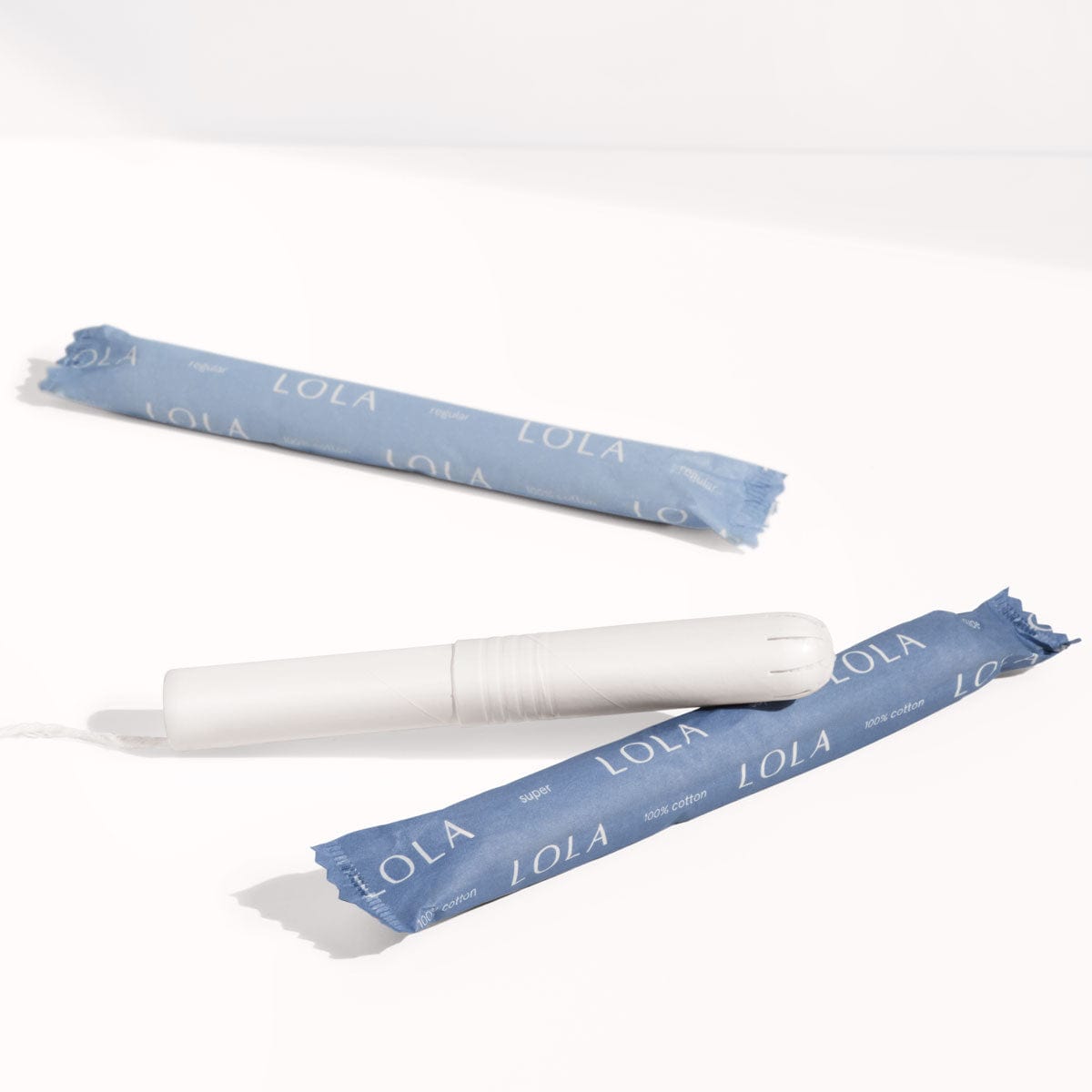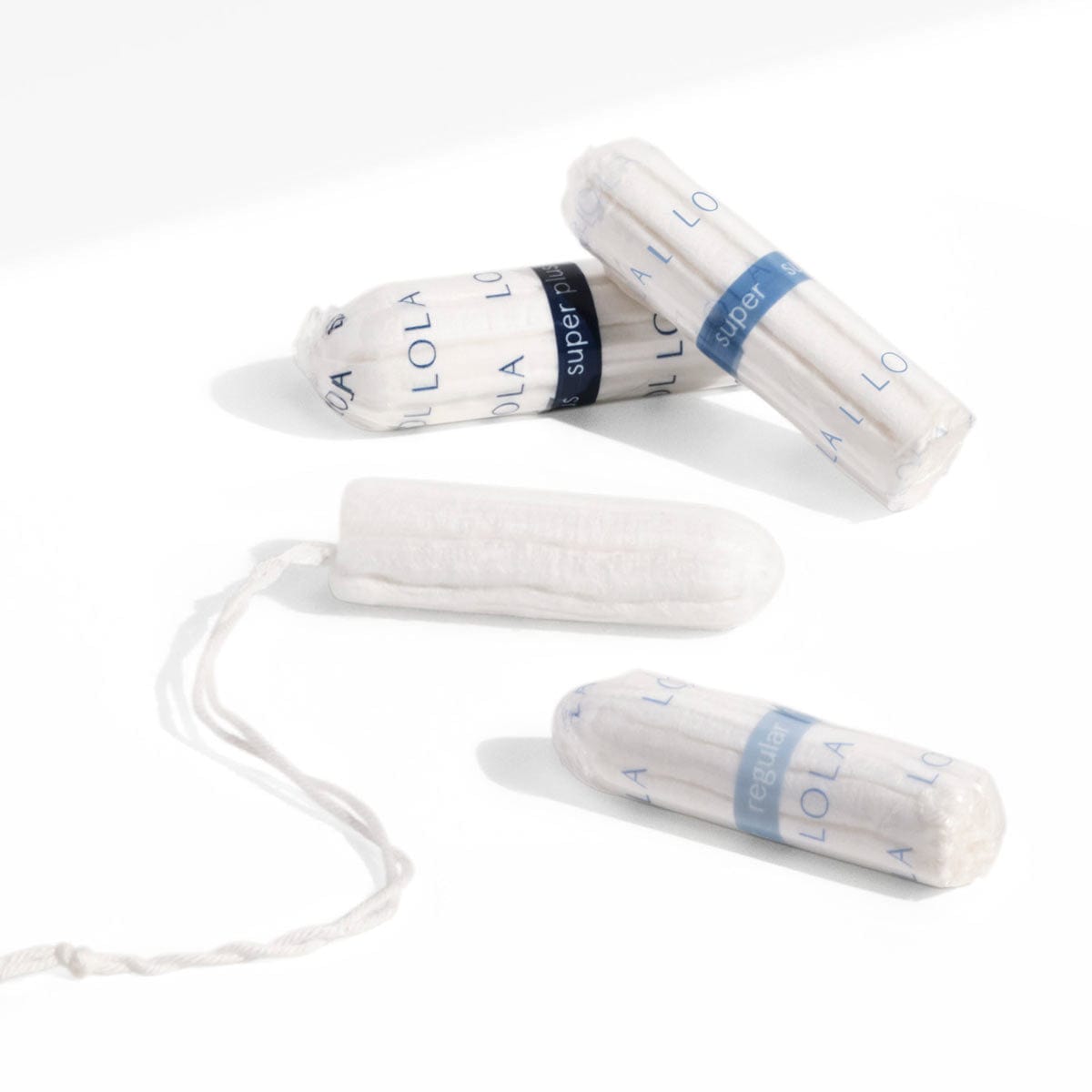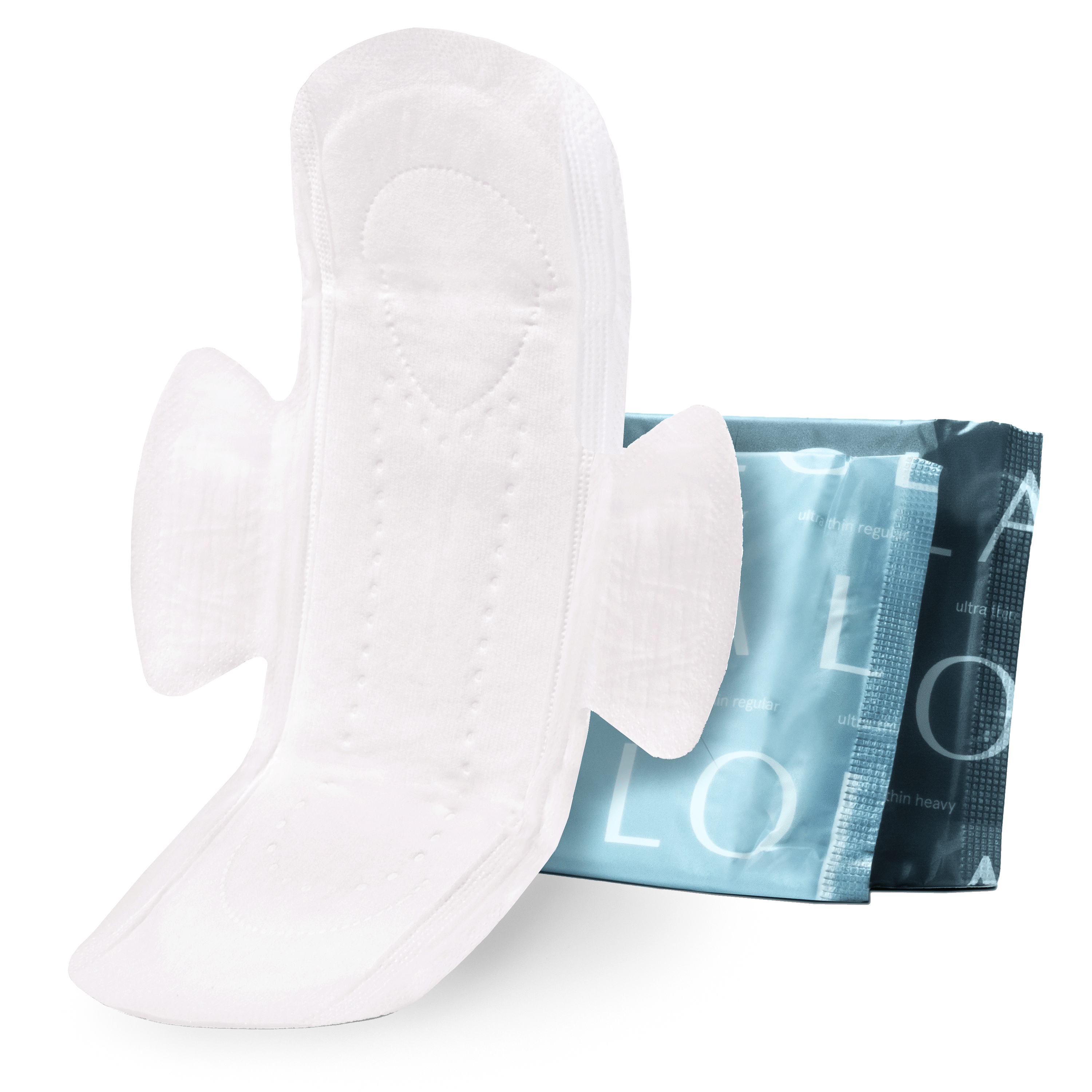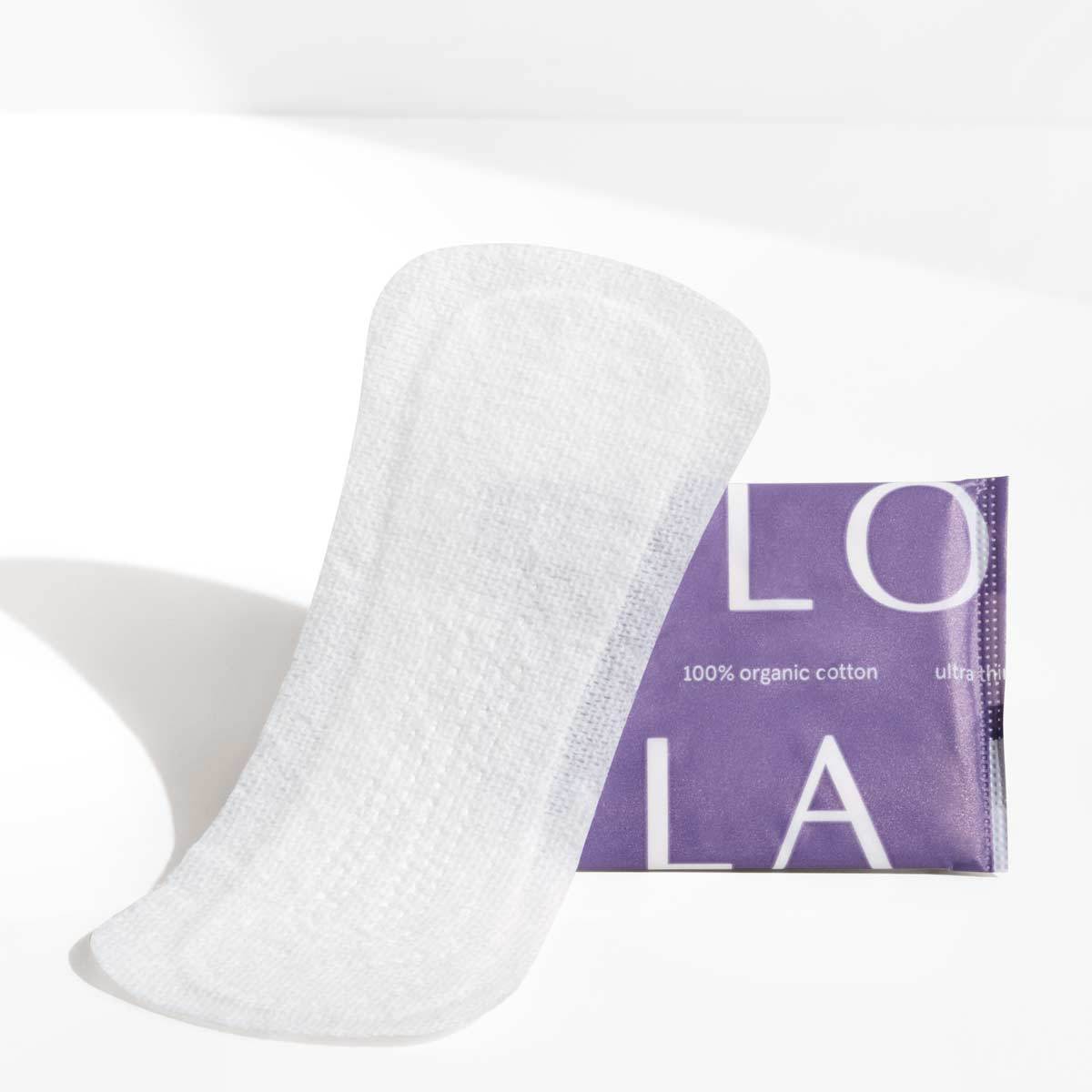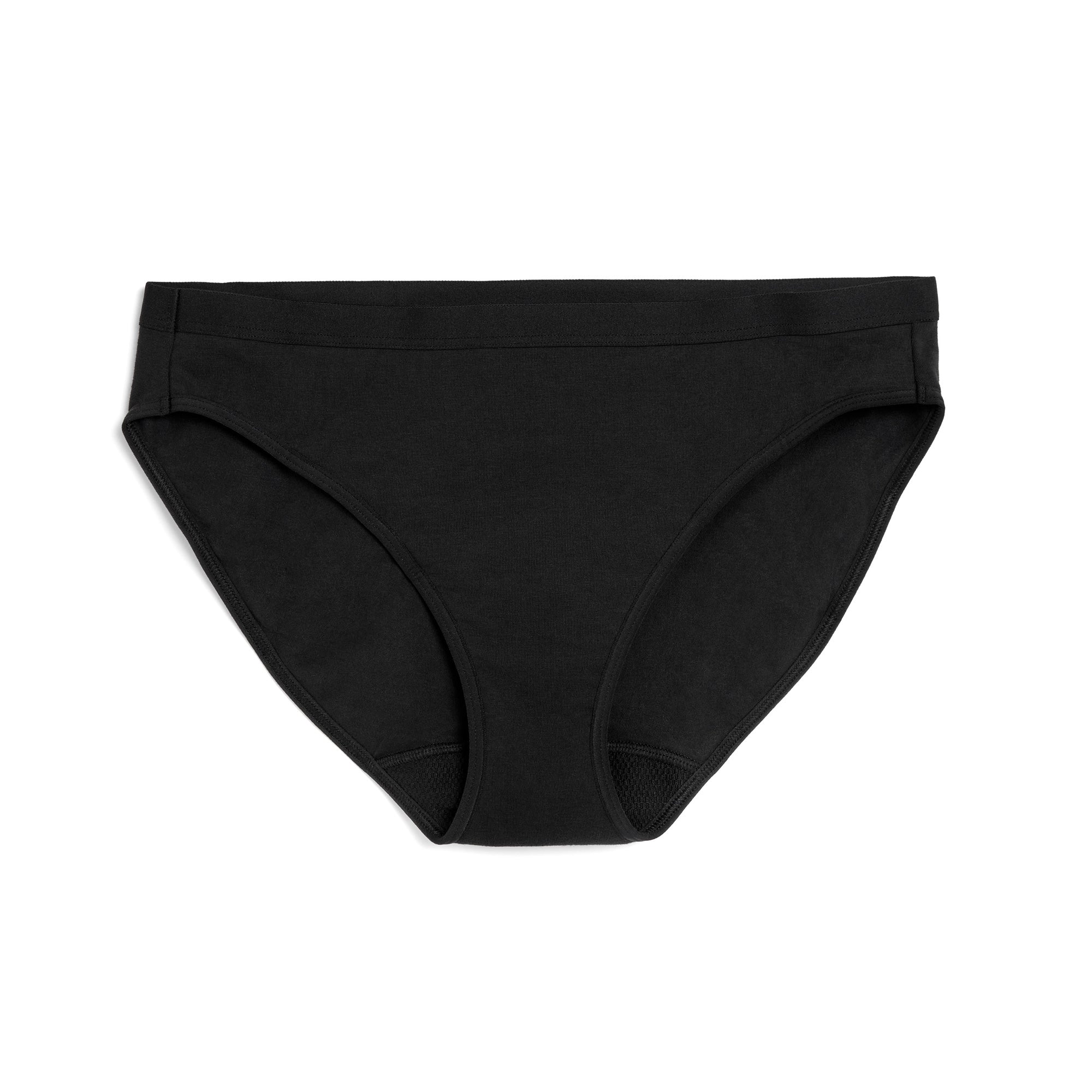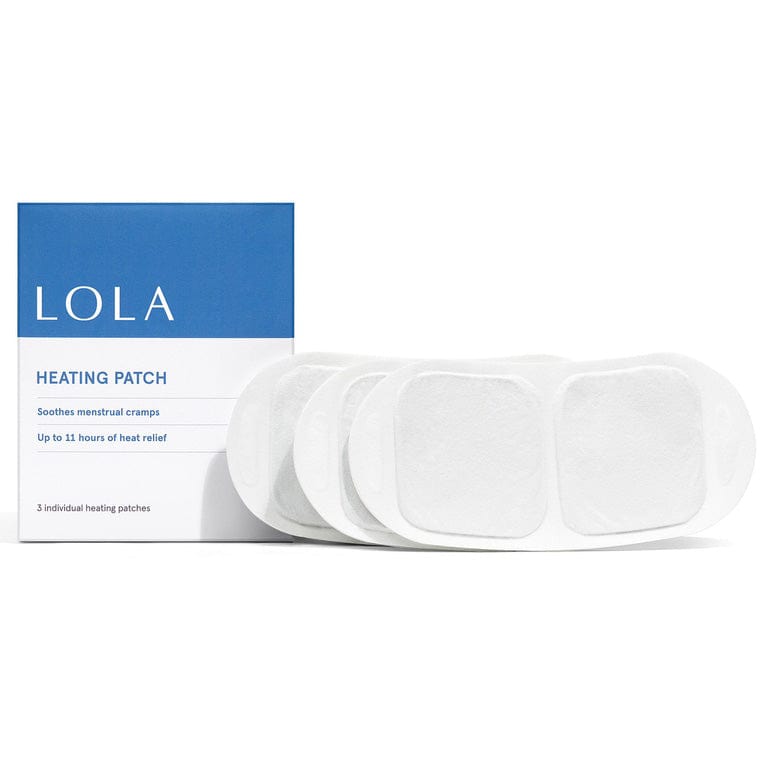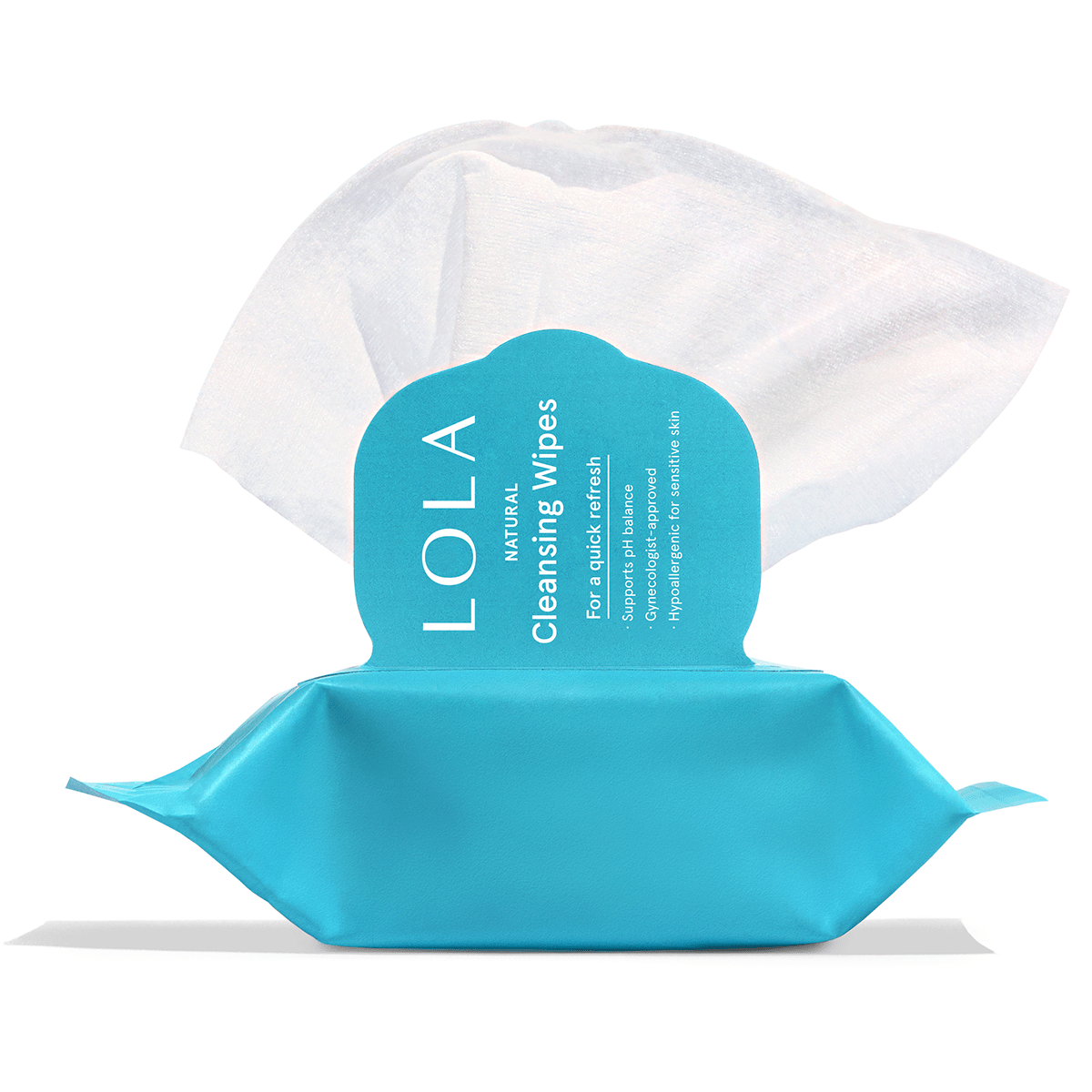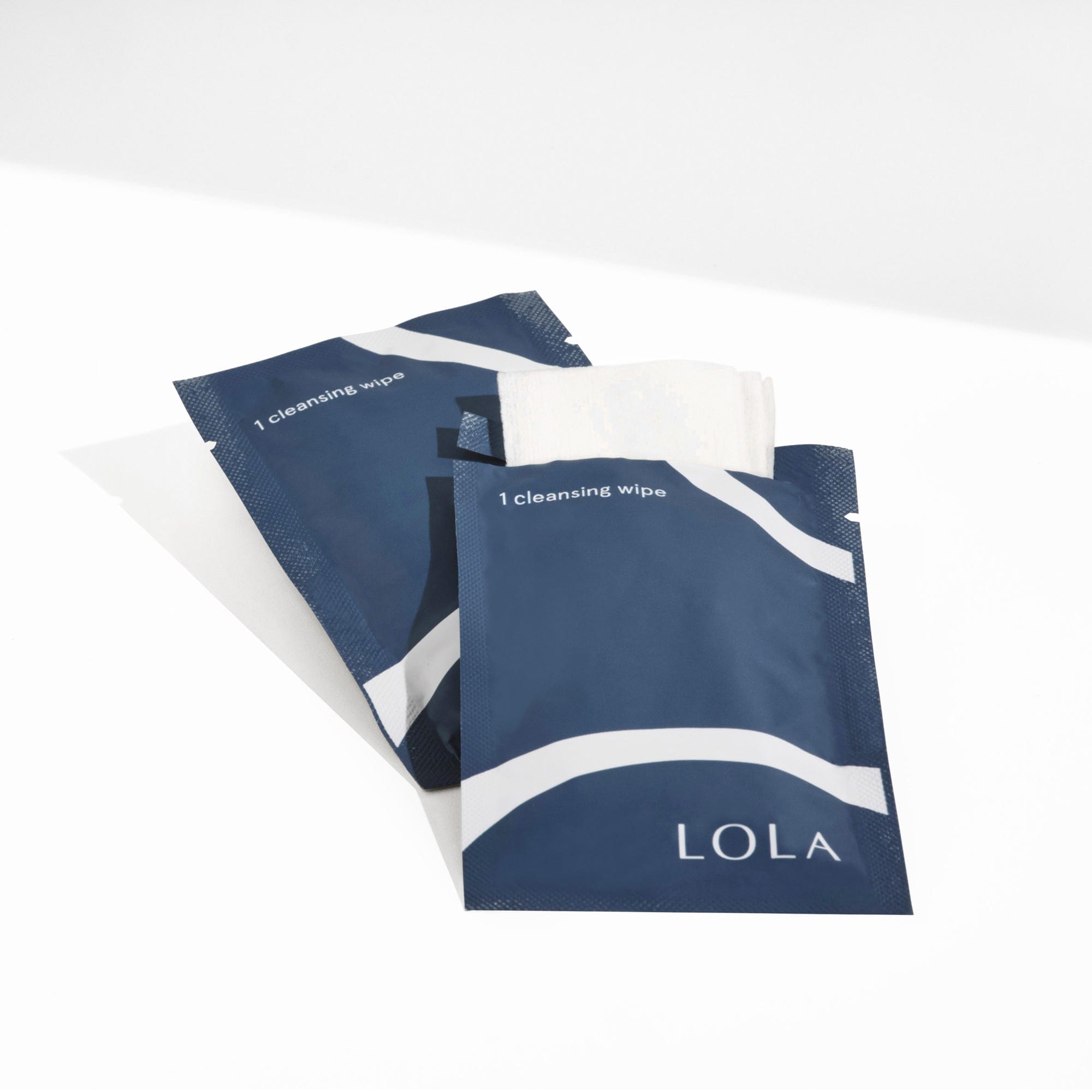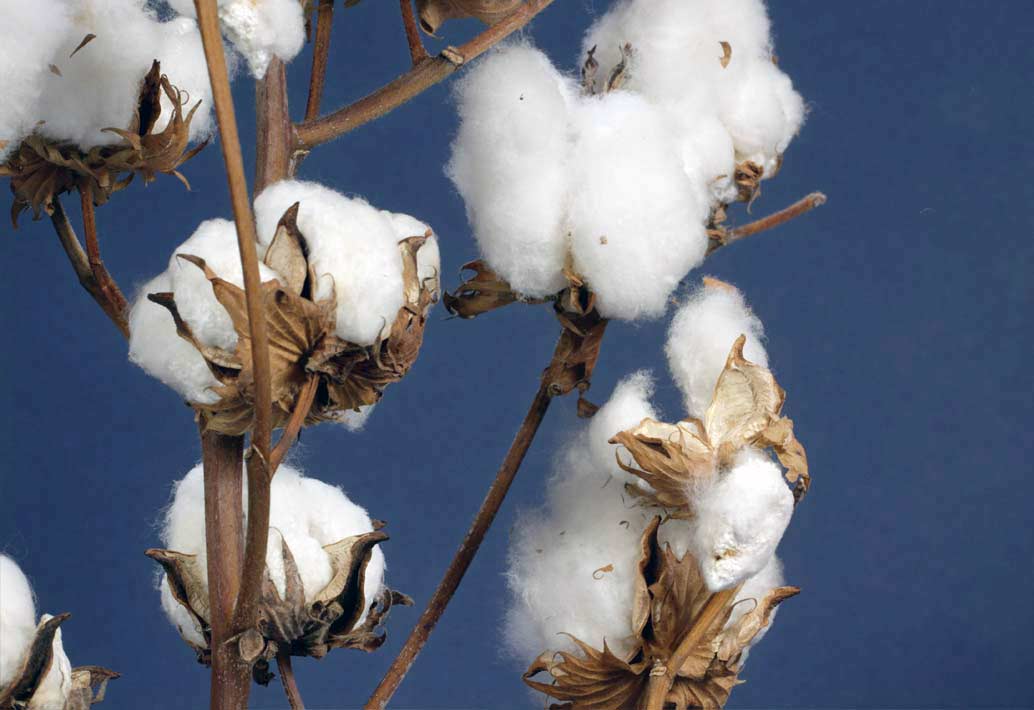Over the past decade, we’ve seen a rise in consciousness around the products we use and where they come from. Many consumers today are more concerned with what goes in and on their bodies, often opting for clean, chemical-free products. Tampon users are no different.
Although organic tampons have been around since the 80s, sales have been on the rise in recent years. That trend is only expected to continue, with sales expected to grow to $1.73 billion by 2032. But as people with periods become more curious about the benefits of making the switch, many stil ask if organic tampons are really better than traditional tampons.
We’ll answer that below and give you all the information you need to decide whether switching to organic tampons is right for you.
What is an organic tampon?
Organic tampons are made of 100% organic cotton. They don’t contain any added fragrances or dyes and aren’t bleached. In contrast, non-organic tampons are typically made using a blend of rayon (an absorbent synthetic fiber) and non-organic cotton. The fibers are also bleached to remove any impurities.
Do organic tampons reduce the risk of Toxic Shock Syndrome (TSS)?
Before we address this question, let’s learn what TSS is. It’s a rare but dangerous medical condition caused when certain bacteria enter the bloodstream. These bacteria release toxins into the blood, affecting the organs.
TSS is often associated with menstruation, particularly with tampon use. Harmful bacteria are often present on the skin or in the vaginal area, which can transfer to the tampon during insertion. Also, when you insert or take off a tampon, it can cause tiny cuts on your vagina, making it easier for the TSS-causing bacteria to enter your bloodstream through your vagina.
A common misconception is that organic tampons are better at preventing TSS than non-organic ones. But this isn’t true. All kinds of tampons, organic or otherwise, can cause TSS. In fact, any products that stay in your vagina for a long time, such as menstrual cups, cervical caps, or sponges, can lead to toxic shock syndrome.
The harmful bacteria multiply on these period products, especially if you leave them in too long. The more time passes, the more chances the bacteria have of entering your uterus through your cervix.
Are organic tampons safer than regular tampons?
Because the U.S. Food and Drug Administration considers tampons to be medical devices, products undergo rigorous testing before making it to stores for purchase. The agency’s review process focuses on safety tests of materials used, the strength and absorbency of the product, and whether it affects the growth of healthy or harmful bacteria in the vagina.
Any tampon on the market today cleared by the FDA is made of cotton, rayon (a semi-synthetic material made from processed wood pulp), or a blend of the two. Organic tampons differ from regular tampons because they’re made from 100% organic cotton and are often produced under more sustainable agricultural and manufacturing processes.
This natural option is important, as concerns have been raised around conventional tampons, whose production process can entail pesticide exposure and the inclusion of added chemicals, fragrances, preservatives, and synthetic materials.
Ellen H., who’s 32 and lives in Brooklyn, has been using organic tampons for the past five years. After seeing an ad that posed the question, “Do you know what’s in your tampon?” she realized how little she knew about the mass production of tampons and did some research. She was shocked by her findings.
“(I remember) finding out that most non-organic tampons are bleached white with chlorine, which is a dioxin and carcinogen,” Ellen says. “In a world where cervical cancer is one of the leading cancers in women, why? I immediately switched and have never gone back.”
Many consumers have shared these same concerns about the harmful chemicals and potential health risks linked to conventional tampons. To address this, regulatory bodies have begun to take action. The FDA has banned the use of chlorine in the bleaching process as it increases the risk of creating dioxin, and in 2019, New York became the first state to require manufacturers to clearly list ingredients on tampon packaging. California soon followed.
Despite these mandates, some major tampon brands still find workarounds that have left consumers seeking greater transparency and deciding to make the switch to organic and all-natural brands.
The benefits of organic tampons
While there may be little scientific evidence to document the health benefits of organic tampons, it’s important to note that there is a dearth of research on the topic. Studies that have addressed the presence of dioxin and other chemicals in conventional tampons vary as to whether the levels are harmful to users. Some sources say the levels are so miniscule that they present no real danger, while others warn of heightened risk.
In an article for The Guardian, Carolyn Nygaard, a naturopathic physician and principal investigator of a study on organic vs. conventional tampons, noted that people with periods use 16-20 tampons per cycle for 13 cycles per year over roughly 30-40 years. And considering the vaginal membrane has a higher absorption rate than external skin, that extended exposure and accumulation over a person’s lifetime has the potential to greatly increase health risks.
“Of course there’s risks with anything these days, but for peace of mind, I’d rather have a lower risk,” Ellen says.
A common concern associated with any tampon usage is the risk of toxic shock syndrome, or TSS. This rare but potentially life-threatening condition occurs when certain strains of bacteria produce poisons in the vagina.
At the moment, the jury’s still out on whether or not organic tampons reduce the risk of TSS. Some studies say they’re safer; some say they’re not. Regardless of material make-up, tampons with higher absorbency levels are linked to a greater risk of developing TSS, and it’s recommended to change tampons every four to eight hours.
One undeniable benefit of organic tampons extends beyond the health benefits of the singular user: a smaller environmental footprint. It’s estimated that seven billion tampons end up in the garbage each year. With a decomposition rate of up to 800 years, it’s easy to imagine the staggering impact tampons can have on the environment. Factor in any harsh chemicals and synthetic materials used in the agricultural and manufacturing process and that impact only worsens.
Organic and all-natural tampon brands often place a greater emphasis on sustainable practices across all stages of the production process, from sourcing the cotton—OB-GYN Kelly Culwell points to data that suggests organic cotton farming uses less water than conventional production and decreases soil erosion—to opting for completely recyclable packaging.
And because they’re made of natural materials, organic tampons decompose more quickly after disposal without contributing to toxic run-off from chemicals or other additives. Some organic tampons can even be composted.
So, TL;DR:
-
Organic tampons more breathable, reducing the risk of bacterial or fungal infections, as they’re made from 100% organic cotton.
-
Organic tampons are hypoallergenic and typically don’t contain artificial dyes, chemicals, or fragrances. This reduces irritation, allergies, or chafing, making them a better choice for people with sensitive skin.
-
Organic tampons are made from natural, organically grown cotton. They are more sustainable and a greener alternative to conventional tampons.
-
Organic tampons are biodegradable and don’t shed harmful microfibers.
-
Organic tampons also support ethical practices by paying fair wages and protecting the health and livelihoods of the farmers who cultivate organic cotton.
[Menstruate in peace with LOLA’s organic tampons. Try them out today!]
Do you bleed less with organic tampons?
While there’s no research to indicate organic feminine products affect menstruation any differently than conventional products, many users associate them with a more positive menstruation experience—especially when it comes to comfort level.
Some users have reported lessened chronic vulvar pain when using organic tampons, and OB-GYN Veena Madhan Kumar notes that organic materials can reduce irritation for individuals who have sensitive skin or are prone to allergies.
At the same time, some chemicals, additives, and allergens found in conventional tampons may also be linked to hormone disruption, which can affect the menstrual cycle. Because organic tampons do not contain any unnatural or harmful ingredients, these potential disruptions can be avoided.
Are organic tampons worth the price?
Organic tampons cost more than their conventional counterparts. But is the extra price worth it? Absolutely!
Not only do organic tampons keep your vagina away from potentially harmful chemicals, they’re also more eco-friendly, have a smaller carbon footprint, and reduce the risk of irritation, chafing, or allergic reactions. If these long-term health, comfort, and environmental benefits are important, you should go organic. Period.
Should I make the switch to organic tampons?
Today, we’re seeing more consumers reconsider the staples of daily life, and for many, tampons certainly apply. Organic tampons are a smart and simple option for those gravitating toward more natural products in their everyday routine.
And while research may be lacking around the health benefits of organic cotton tampons, eliminating the opportunity for harmful chemicals to come in contact with a sensitive and vulnerable part of your body can only be positive.
Another plus to consider is that organic tampons are also often convenient and budget-friendly, as many brands offer subscription services that deliver products directly to your door. Depending on the brand, the price of organic tampons is often even lower than that of the conventional tampon options available in stores.
Everyone’s menstruating experience differs, and it often takes time to find the products that work with your body and align with your values. If you find yourself eliminating products with chemicals and additives and placing more emphasis on environmental awareness, organic tampons may be for you.
Frequently Asked Questions (FAQs)
Are organic tampons better than non-organic ones?
Organic tampons are better than non-organic ones in terms of comfort and sustainability. Since organic tampons are made using plant-based products with no chemical additives or allergens, they make for a better option if you want to eliminate chemicals and toxins from your period products.
Do you bleed less with organic tampons?
There’s no direct correlation between the type of tampons you use and the flow of your period, so you don’t bleed any less or more with organic tampons. They are, however, more comfortable than conventional tampons, so you might experience better periods overall with less irritation and itchiness.
What are the benefits of organic tampons?
Organic tampons are made from naturally occurring plant-based cotton. This elimination of potentially harmful chemicals gives you more comfort during your periods. They’re also environmentally sustainable, support ethical practices for the laborers, and biodegrade instead of wasting away in landfills for decades.
